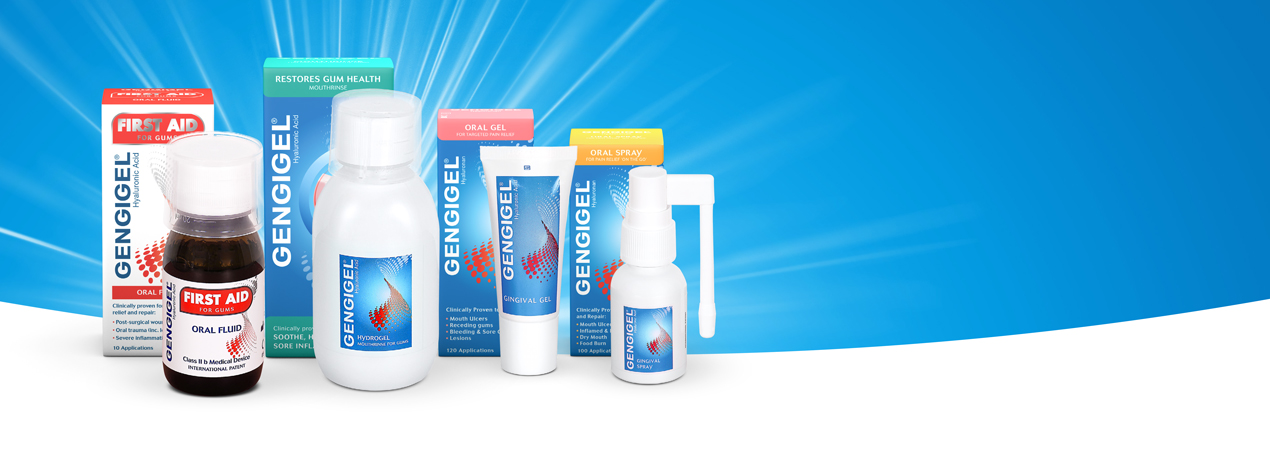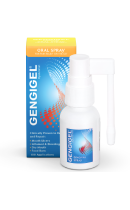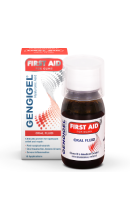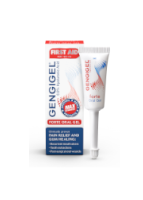Candida
What is Candida?
Candida is the name given to oral thrush – the infection itself is called candidiasis. It is a yeast or fungi infection that develops on the mucous membranes of the mouth. This is the moist lining of the oral cavity and those people with a weak immune system will be more susceptible developing Candida.
It is most commonly caused by the fungus Candida albicans, but may also be caused by Candida glabrata or Candida tropicalis.
What does Candida look like?
Candidiasis can present itself in many forms, but the most obvious symptom of oral thrush is creamy or white-coloured deposits in the mouth. The lesions commonly present on the inner cheeks and tongue which may bleed slightly when scraped or become sore. The infected areas will tend to appear inflamed and red.
What are the causes of Candida?
Oral thrush occurs when the Candida albicans grow out of control. The immune system usually keeps the good and bad micro-organisms in check, but when this is disrupted the harmful fungi and bacteria begin to multiply and this gives rise for an infection to develop.
Various conditions can damage or kill healthy cells which makes people more prone to oral thrush, these include radiotherapy and chemotherapy for treating cancers, as well as diseases that attack the immune system such as Sjögrens, Lupus, Leukaemia, and HIV/AIDS. In addition, other causes may be taking antibiotics at a high dose or over a long period, smoking, inhaling corticosteroid medication for asthma, generally poor oral hygiene and having a dry mouth.
People with uncontrolled diabetes are likely to have a high sugar level in their saliva and it is considered that Candida albicans use this sugar to fuel the growth of infection in the mouth.
Who gets Candida?
Everyone can be susceptible to oral thrush but the most common sufferers are those undertaking a course of radiotherapy or chemotherapy to the head and neck area. These group of people are also highly likely to contract mucositis. Also people who wear dentures (especially if they are ill-fitting), use asthma inhalers and take certain medications that contribute to drying out the mouth will cause candida to develop.
Other people who may be more prone to oral thrush are those with underlying health issues such as having an iron or vitamin B12 deficiency, an underactive thyroid or if a person has had an organ transplant.
Where about in the mouth does candida show?
Oral thrush can sometimes spread to the roof of the mouth and the back of the throat, but most commonly it is on the inside of the cheek or oral mucosa (where it is moist) and the tongue.
What are the typical symptoms of Candida?
In its initial stages, oral thrush may not cause any symptoms. However, over a period of time the fungus will continue to grow where some of the following symptoms may develop: creamy white bumps or patches on the tongue, inner cheeks, gums, or tonsils (which may bleed if scraped), dry and cracked skin at the corners of the mouth, altered or unpleasant taste in the mouth or painful burning sensation all over the mouth.
These painful symptoms will often mean eating and drinking (or even speaking) may be difficult to manage.
What treatments can be safely used to relief the symptoms of Candida?
Treatment can vary depending on a person’s age or overall health. In order to stop the spread of fungus, it is recommended to use salt water to rinse the mouth, ensuring blood sugar levels are maintained if you are diabetic and eat unsweetened yoghurts to restore and keep healthy levels of good bacteria. Moreover, it is important to stop smoking and to select a softer toothbrush so the lesions are not scraped. Replacing the brush daily until the infections have gone. Denture wearers need to ensure that the dentures are clean, sterilised daily and are always removed at night.
Should medical treatment be necessary there are a few oral antifungal medications available via prescription and include gels and liquids which are applied directly on the affected areas in the mouth. However, tablets or capsules are occasionally used. These medications are usually applied every few hours throughout the day for as much as 14 days to ensure the infection has gone.
If antibiotics or corticosteroids are thought to be causing your oral thrush, the medicine or the way it is delivered, may need to be changed or the dosage reduced.
Is Candida contagious?
Oral thrush is a fungal infection of the mouth. It is not contagious and is usually successfully treated with antifungal therapies.
To relieve Candida
To manage candida the most appropriate Gengigel products will be the Gengigel First Aid as this will adhere to the affected area to control oral pain and inflammation with no risk of trauma. In between these doses using Gengigel Mouthrinse will help restore a healthy mouth and provide pain relief.
 Buy Online
Buy Online







